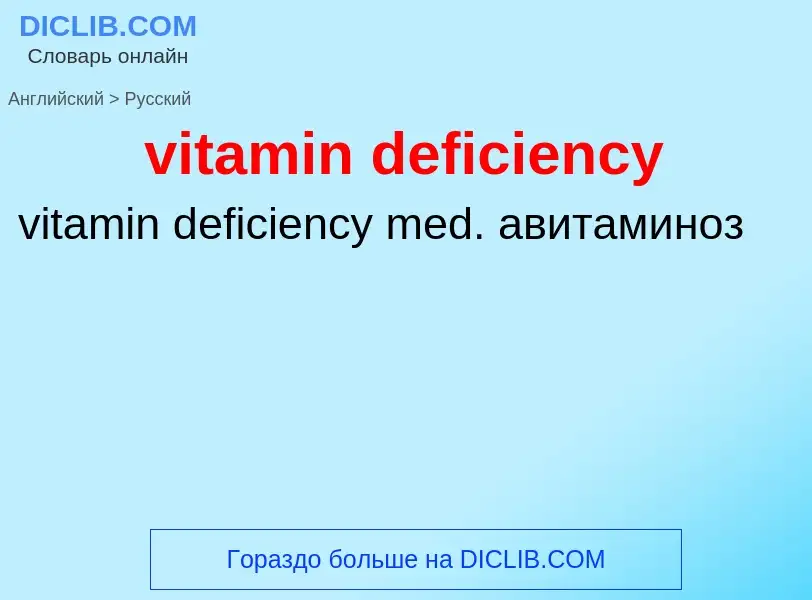Traducción y análisis de palabras por inteligencia artificial ChatGPT
En esta página puede obtener un análisis detallado de una palabra o frase, producido utilizando la mejor tecnología de inteligencia artificial hasta la fecha:
- cómo se usa la palabra
- frecuencia de uso
- se utiliza con más frecuencia en el habla oral o escrita
- opciones de traducción
- ejemplos de uso (varias frases con traducción)
- etimología
vitamin deficiency - traducción al Inglés
общая лексика
авитаминоз
Definición
Wikipedia
Vitamin deficiency is the condition of a long-term lack of a vitamin. When caused by not enough vitamin intake it is classified as a primary deficiency, whereas when due to an underlying disorder such as malabsorption it is called a secondary deficiency. An underlying disorder may be metabolic – as in a genetic defect for converting tryptophan to niacin – or from lifestyle choices that increase vitamin needs, such as smoking or drinking alcohol. Government guidelines on vitamin deficiencies advise certain intakes for healthy people, with specific values for women, men, babies, the elderly, and during pregnancy or breastfeeding. Many countries have mandated vitamin food fortification programs to prevent commonly occurring vitamin deficiencies.
Conversely, hypervitaminosis refers to symptoms caused by vitamin intakes in excess of needs, especially for fat-soluble vitamins that can accumulate in body tissues.
The history of the discovery of vitamin deficiencies progressed over centuries from observations that certain conditions – for example, scurvy – could be prevented or treated with certain foods having high content of a necessary vitamin, to the identification and description of specific molecules essential for life and health. During the 20th century, several scientists were awarded the Nobel Prize in Physiology or Medicine or the Nobel Prize in Chemistry for their roles in the discovery of vitamins.

![[[Jack Drummond]]'s single-paragraph article in 1920 which provided structure and nomenclature used today for vitamins [[Jack Drummond]]'s single-paragraph article in 1920 which provided structure and nomenclature used today for vitamins](https://commons.wikimedia.org/wiki/Special:FilePath/J. C. Drummond, The Nomenclature of the So-called Accessory Food Factors (Vitamins), 1920.png?width=200)
